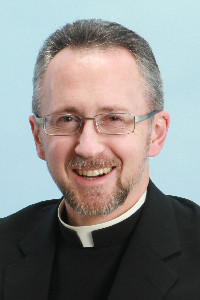First of Two Parts

Allow me to raise a topic that makes us at least a little uncomfortable at times—let’s talk about conscience.
It’s almost always a challenge to confront the voice of conscience openly and honestly. The mere suggestion of the topic might remind us of plenty of things we’d rather forget. For many, talk of conscience conjures up images of nuns in full habit wielding yardsticks, making us stay after school and drilling our heads with do’s and don’ts, rules and norms, all aimed at keeping us from sundry “forbidden fruits.” This whole thing about conscience, we are told by pop psychology, is what’s to blame for our “Catholic guilt.” Conscience is that thing that ruins all our fun!
I would suggest, however, that conscience has actually earned an undeservedly bad reputation. And, consequently, confusion about conscience—especially among Catholics—is rampant.
So, let’s see if we can’t dispel some misconceptions about moral conscience, and construct a more accurate portrait of what conscience really is, and the role it can and should play in our lives. As I hope to show, a well-formed conscience—properly understood—is our ticket to a profoundly joyful Christian life.
“Teacher, what good must I do?” This is the question the “rich young man” poses to Jesus in Matthew 19:16. It is also the question which philosophers from Aristotle to Kant to John Paul II have discovered to be at the core of what makes us tick as human beings: “What ought I to do?” “What is the right thing to do in this situation here and now?” This is the question which conscience was designed to answer.
The Catechism of the Catholic Church teaches that “conscience is a judgment of reason whereby the human person recognizes the moral quality of a concrete act that he is going to perform, is in the process of performing, or has already completed (1778).”
This definition, to which we will return in a moment, gives us the opportunity first of all to dispel a few mistaken ideas about conscience.
The topic of moral conscience too often evokes memories of everything from being punished for not eating our peas to being chewed out by a coach, demeaned by an overbearing parent, or worse. Authentic conscience, however, is not that stored up angst from past “guilt trips.” And while the salutary feeling of guilt often does accompany the judgment of conscience, conscience cannot be equated with guilt feelings, or with any mere emotion for that matter.
Indeed, conscience must be carefully distinguished from emotions—a tall order in our immediate-gratification-if-it-feels-good-do-it culture. For many, the real McCoy experience of conscience has been clouded by the pseudo-moral injunction: “following your heart.” But all that glitters is not gold, and all that our heart compels us to do may or may not coincide with what the genuine voice of conscience compels us to do.
Admittedly, the interior conflict between our emotional reactions (“what my heart is telling me”) and the voice of conscience can be tremendous at times. One of the great challenges along the road to moral maturity is to learn to distinguish the two, and to follow faithfully a rightly formed conscience (even over the protestations of the heart!).
Nor is it correct to understand conscience as merely “my take,” my assessment, my opinion (and much less my autonomous decision) about “what I ought to do” in a given matter. The authentic voice of conscience is something much deeper than mere opinion or “gut feelings.”
Confusion about conscience can stem especially from the bad habit of rationalizing immoral choices. Rationalization is a psychological trick we play on ourselves to pacify the voice of conscience: as the song says, “It can’t be wrong when it feels so right!”
Beyond rationalization, a worse predicament arises through habitual inattention to conscience compounded by habits of sin. Sin normally involves placing ourselves in conflict with the judgment of conscience. To do so habitually and over long periods of time has the effect of essentially extinguishing the voice of conscience.
Returning to the Catechism definition, then, conscience is termed a “judgment,” that is, an exercise of our God-given faculty of reasoning—practical reasoning, to be specific. How so? Not in the way we might use practical reasoning to invent a new cookie recipe or figure out what’s ailing our car’s transmission. Those are answers to the “how” question; the judgment of conscience is an answer to the “should” question: “Should I do this or not do this?”
A right judgment of conscience is the internal guidance we receive through our ability to reason practically having been first educated in objective and true moral principles, and guided by grace. Sometimes we are able to arrive at that judgment very quickly and easily: “Should I have another glass of wine?” we ask ourselves. “Better not to” comes the answer.
Sometimes the judgment of conscience only emerges after assessing the situation in light of pertinent moral norms (perhaps with the help of a sound moral guide) and then visiting that inner sanctuary to allow a proper judgment—“do this; avoid that”—to emerge, ideally, in an atmosphere of prayer and serene reflection.
In the next issue, I will explore what it means to form our conscience properly.
Father Berg is professor of moral theology at St. Joseph’s Seminary, Dunwoodie.